While Sandel argues that pursuing perfection through genetic engineering would decrease our sense of humility, he claims that the sense of solidarity we would lose is also important.
This thesis summarizes several points in Sandel’s argument, but it does not make a claim about how we should understand his argument. A reader who read Sandel’s argument would not also need to read an essay based on this descriptive thesis.

Broad thesis (arguable, but difficult to support with evidence)
Michael Sandel’s arguments about genetic engineering do not take into consideration all the relevant issues.
This is an arguable claim because it would be possible to argue against it by saying that Michael Sandel’s arguments do take all of the relevant issues into consideration. But the claim is too broad. Because the thesis does not specify which “issues” it is focused on—or why it matters if they are considered—readers won’t know what the rest of the essay will argue, and the writer won’t know what to focus on. If there is a particular issue that Sandel does not address, then a more specific version of the thesis would include that issue—hand an explanation of why it is important.
Arguable thesis with analytical claim
While Sandel argues persuasively that our instinct to “remake” (54) ourselves into something ever more perfect is a problem, his belief that we can always draw a line between what is medically necessary and what makes us simply “better than well” (51) is less convincing.
This is an arguable analytical claim. To argue for this claim, the essay writer will need to show how evidence from the article itself points to this interpretation. It’s also a reasonable scope for a thesis because it can be supported with evidence available in the text and is neither too broad nor too narrow.
Arguable thesis with normative claim
Given Sandel’s argument against genetic enhancement, we should not allow parents to decide on using Human Growth Hormone for their children.
This thesis tells us what we should do about a particular issue discussed in Sandel’s article, but it does not tell us how we should understand Sandel’s argument.
Questions to ask about your thesis
- Is the thesis truly arguable? Does it speak to a genuine dilemma in the source, or would most readers automatically agree with it?
- Is the thesis too obvious? Again, would most or all readers agree with it without needing to see your argument?
- Is the thesis complex enough to require a whole essay's worth of argument?
- Is the thesis supportable with evidence from the text rather than with generalizations or outside research?
- Would anyone want to read a paper in which this thesis was developed? That is, can you explain what this paper is adding to our understanding of a problem, question, or topic?
- picture_as_pdf Thesis
Purdue Online Writing Lab Purdue OWL® College of Liberal Arts
University Thesis and Dissertation Templates

Welcome to the Purdue OWL
This page is brought to you by the OWL at Purdue University. When printing this page, you must include the entire legal notice.
Copyright ©1995-2018 by The Writing Lab & The OWL at Purdue and Purdue University. All rights reserved. This material may not be published, reproduced, broadcast, rewritten, or redistributed without permission. Use of this site constitutes acceptance of our terms and conditions of fair use.
Theses and dissertations are already intensive, long-term projects that require a lot of effort and time from their authors. Formatting for submission to the university is often the last thing that graduate students do, and may delay earning the relevant degree if done incorrectly.
Below are some strategies graduate students can use to deal with institutional formatting requirements to earn their degrees on time.
Disciplinary conventions are still paramount.
Scholars in your own discipline are the most common readers of your dissertation; your committee, too, will expect your work to match with their expectations as members of your field. The style guide your field uses most commonly is always the one you should follow, and if your field uses conventions such as including all figures and illustrations at the end of the document, you should do so. After these considerations are met, move on to university formatting. Almost always, university formatting only deals with things like margins, font, numbering of chapters and sections, and illustrations; disciplinary style conventions in content such as APA's directive to use only last names of authors in-text are not interfered with by university formatting at all.
Use your university's formatting guidelines and templates to your advantage.
If your institution has a template for formatting your thesis or dissertation that you can use, do so. Don't look at another student's document and try to replicate it yourself. These templates typically have the necessary section breaks and styles already in the document, and you can copy in your work from your existing draft using the style pane in MS Word to ensure you're using the correct formatting (similarly with software such as Overleaf when writing in LaTeX, templates do a lot of the work for you). It's also often easier for workers in the offices that deal with theses and dissertations to help you with your work if you're using their template — they are familiar with these templates and can often navigate them more proficiently.
These templates also include placeholders for all front matter you will need to include in your thesis or dissertation, and may include guidelines for how to write these. Front matter includes your table of contents, acknowledgements, abstract, abbreviation list, figure list, committee page, and (sometimes) academic history or CV; everything before your introduction is front matter. Since front matter pages such as the author's academic history and dissertation committee are usually for the graduate school and not for your department, your advisor might not remember to have you include them. Knowing about them well before your deposit date means you won't be scrambling to fill in placeholders at the last minute or getting your work returned for revision from the graduate school.
Consider institutional formatting early and often.
Many graduate students leave this aspect of submitting their projects until it's almost too late to work on it, causing delays in obtaining their degree. Simply being aware that this is a task you'll have to complete and making sure you know where templates are, who you can ask for help in your graduate office or your department, and what your institution's guidelines are can help alleviate this issue. Once you know what you'll be expected to do to convert to university formatting, you can set regular check-in times for yourself to do this work in pieces rather than all at once (for instance, when you've completed a chapter and had it approved by your chair).
Consider fair use for images and other third-party content.
Most theses and dissertations are published through ProQuest or another publisher (Harvard, for instance, uses their own open publishing service). For this reason, it may be the case that your institution requires all images or other content obtained from other sources to fall under fair use rules or, if an image is not considered under fair use, you'll have to obtain permission to print it in your dissertation. Your institution should have more guidance on their specific expectations for fair use content; knowing what these guidelines are well in advance of your deposit date means you won't have to make last-minute changes or removals to deposit your work.
How to write an undergraduate university dissertation
Writing a dissertation is a daunting task, but these tips will help you prepare for all the common challenges students face before deadline day.

Grace McCabe
Writing a dissertation is one of the most challenging aspects of university. However, it is the chance for students to demonstrate what they have learned during their degree and to explore a topic in depth.
In this article, we look at 10 top tips for writing a successful dissertation and break down how to write each section of a dissertation in detail.
10 tips for writing an undergraduate dissertation
1. Select an engaging topic Choose a subject that aligns with your interests and allows you to showcase the skills and knowledge you have acquired through your degree.
2. Research your supervisor Undergraduate students will often be assigned a supervisor based on their research specialisms. Do some research on your supervisor and make sure that they align with your dissertation goals.
3. Understand the dissertation structure Familiarise yourself with the structure (introduction, review of existing research, methodology, findings, results and conclusion). This will vary based on your subject.
4. Write a schedule As soon as you have finalised your topic and looked over the deadline, create a rough plan of how much work you have to do and create mini-deadlines along the way to make sure don’t find yourself having to write your entire dissertation in the final few weeks.
5. Determine requirements Ensure that you know which format your dissertation should be presented in. Check the word count and the referencing style.
6. Organise references from the beginning Maintain an alphabetically arranged reference list or bibliography in the designated style as you do your reading. This will make it a lot easier to finalise your references at the end.
7. Create a detailed plan Once you have done your initial research and have an idea of the shape your dissertation will take, write a detailed essay plan outlining your research questions, SMART objectives and dissertation structure.
8. Keep a dissertation journal Track your progress, record your research and your reading, and document challenges. This will be helpful as you discuss your work with your supervisor and organise your notes.
9. Schedule regular check-ins with your supervisor Make sure you stay in touch with your supervisor throughout the process, scheduling regular meetings and keeping good notes so you can update them on your progress.
10. Employ effective proofreading techniques Ask friends and family to help you proofread your work or use different fonts to help make the text look different. This will help you check for missing sections, grammatical mistakes and typos.
What is a dissertation?
A dissertation is a long piece of academic writing or a research project that you have to write as part of your undergraduate university degree.
It’s usually a long essay in which you explore your chosen topic, present your ideas and show that you understand and can apply what you’ve learned during your studies. Informally, the terms “dissertation” and “thesis” are often used interchangeably.
How do I select a dissertation topic?
First, choose a topic that you find interesting. You will be working on your dissertation for several months, so finding a research topic that you are passionate about and that demonstrates your strength in your subject is best. You want your topic to show all the skills you have developed during your degree. It would be a bonus if you can link your work to your chosen career path, but it’s not necessary.
Second, begin by exploring relevant literature in your field, including academic journals, books and articles. This will help you identify gaps in existing knowledge and areas that may need further exploration. You may not be able to think of a truly original piece of research, but it’s always good to know what has already been written about your chosen topic.
Consider the practical aspects of your chosen topic, ensuring that it is possible within the time frame and available resources. Assess the availability of data, research materials and the overall practicality of conducting the research.
When picking a dissertation topic, you also want to try to choose something that adds new ideas or perspectives to what’s already known in your field. As you narrow your focus, remember that a more targeted approach usually leads to a dissertation that’s easier to manage and has a bigger impact. Be ready to change your plans based on feedback and new information you discover during your research.
How to work with your dissertation supervisor?
Your supervisor is there to provide guidance on your chosen topic, direct your research efforts, and offer assistance and suggestions when you have queries. It’s crucial to establish a comfortable and open line of communication with them throughout the process. Their knowledge can greatly benefit your work. Keep them informed about your progress, seek their advice, and don’t hesitate to ask questions.
1. Keep them updated Regularly tell your supervisor how your work is going and if you’re having any problems. You can do this through emails, meetings or progress reports.
2. Plan meetings Schedule regular meetings with your supervisor. These can be in person or online. These are your time to discuss your progress and ask for help.
3. Share your writing Give your supervisor parts of your writing or an outline. This helps them see what you’re thinking so they can advise you on how to develop it.
5. Ask specific questions When you need help, ask specific questions instead of general ones. This makes it easier for your supervisor to help you.
6. Listen to feedback Be open to what your supervisor says. If they suggest changes, try to make them. It makes your dissertation better and shows you can work together.
7. Talk about problems If something is hard or you’re worried, talk to your supervisor about it. They can give you advice or tell you where to find help.
8. Take charge Be responsible for your work. Let your supervisor know if your plans change, and don’t wait if you need help urgently.
Remember, talking openly with your supervisor helps you both understand each other better, improves your dissertation and ensures that you get the support you need.
How to write a successful research piece at university How to choose a topic for your dissertation Tips for writing a convincing thesis
How do I plan my dissertation?
It’s important to start with a detailed plan that will serve as your road map throughout the entire process of writing your dissertation. As Jumana Labib, a master’s student at the University of Manchester studying digital media, culture and society, suggests: “Pace yourself – definitely don’t leave the entire thing for the last few days or weeks.”
Decide what your research question or questions will be for your chosen topic.
Break that down into smaller SMART (specific, measurable, achievable, relevant and time-bound) objectives.
Speak to your supervisor about any overlooked areas.
Create a breakdown of chapters using the structure listed below (for example, a methodology chapter).
Define objectives, key points and evidence for each chapter.
Define your research approach (qualitative, quantitative or mixed methods).
Outline your research methods and analysis techniques.
Develop a timeline with regular moments for review and feedback.
Allocate time for revision, editing and breaks.
Consider any ethical considerations related to your research.
Stay organised and add to your references and bibliography throughout the process.
Remain flexible to possible reviews or changes as you go along.
A well thought-out plan not only makes the writing process more manageable but also increases the likelihood of producing a high-quality piece of research.
How to structure a dissertation?
The structure can depend on your field of study, but this is a rough outline for science and social science dissertations:
Introduce your topic.
Complete a source or literature review.
Describe your research methodology (including the methods for gathering and filtering information, analysis techniques, materials, tools or resources used, limitations of your method, and any considerations of reliability).
Summarise your findings.
Discuss the results and what they mean.
Conclude your point and explain how your work contributes to your field.
On the other hand, humanities and arts dissertations often take the form of an extended essay. This involves constructing an argument or exploring a particular theory or analysis through the analysis of primary and secondary sources. Your essay will be structured through chapters arranged around themes or case studies.
All dissertations include a title page, an abstract and a reference list. Some may also need a table of contents at the beginning. Always check with your university department for its dissertation guidelines, and check with your supervisor as you begin to plan your structure to ensure that you have the right layout.
How long is an undergraduate dissertation?
The length of an undergraduate dissertation can vary depending on the specific guidelines provided by your university and your subject department. However, in many cases, undergraduate dissertations are typically about 8,000 to 12,000 words in length.
“Eat away at it; try to write for at least 30 minutes every day, even if it feels relatively unproductive to you in the moment,” Jumana advises.
How do I add references to my dissertation?
References are the section of your dissertation where you acknowledge the sources you have quoted or referred to in your writing. It’s a way of supporting your ideas, evidencing what research you have used and avoiding plagiarism (claiming someone else’s work as your own), and giving credit to the original authors.
Referencing typically includes in-text citations and a reference list or bibliography with full source details. Different referencing styles exist, such as Harvard, APA and MLA, each favoured in specific fields. Your university will tell you the preferred style.
Using tools and guides provided by universities can make the referencing process more manageable, but be sure they are approved by your university before using any.
How do I write a bibliography or list my references for my dissertation?
The requirement of a bibliography depends on the style of referencing you need to use. Styles such as OSCOLA or Chicago may not require a separate bibliography. In these styles, full source information is often incorporated into footnotes throughout the piece, doing away with the need for a separate bibliography section.
Typically, reference lists or bibliographies are organised alphabetically based on the author’s last name. They usually include essential details about each source, providing a quick overview for readers who want more information. Some styles ask that you include references that you didn’t use in your final piece as they were still a part of the overall research.
It is important to maintain this list as soon as you start your research. As you complete your research, you can add more sources to your bibliography to ensure that you have a comprehensive list throughout the dissertation process.
How to proofread an undergraduate dissertation?
Throughout your dissertation writing, attention to detail will be your greatest asset. The best way to avoid making mistakes is to continuously proofread and edit your work.
Proofreading is a great way to catch any missing sections, grammatical errors or typos. There are many tips to help you proofread:
Ask someone to read your piece and highlight any mistakes they find.
Change the font so you notice any mistakes.
Format your piece as you go, headings and sections will make it easier to spot any problems.
Separate editing and proofreading. Editing is your chance to rewrite sections, add more detail or change any points. Proofreading should be where you get into the final touches, really polish what you have and make sure it’s ready to be submitted.
Stick to your citation style and make sure every resource listed in your dissertation is cited in the reference list or bibliography.
How to write a conclusion for my dissertation?
Writing a dissertation conclusion is your chance to leave the reader impressed by your work.
Start by summarising your findings, highlighting your key points and the outcome of your research. Refer back to the original research question or hypotheses to provide context to your conclusion.
You can then delve into whether you achieved the goals you set at the beginning and reflect on whether your research addressed the topic as expected. Make sure you link your findings to existing literature or sources you have included throughout your work and how your own research could contribute to your field.
Be honest about any limitations or issues you faced during your research and consider any questions that went unanswered that you would consider in the future. Make sure that your conclusion is clear and concise, and sum up the overall impact and importance of your work.
Remember, keep the tone confident and authoritative, avoiding the introduction of new information. This should simply be a summary of everything you have already said throughout the dissertation.
You may also like

.css-185owts{overflow:hidden;max-height:54px;text-indent:0px;} How to use digital advisers to improve academic writing

How to deal with exam stress
Seeta Bhardwa

5 revision techniques to help you ace exam season (plus 7 more unusual approaches)
Register free and enjoy extra benefits

- Request Info
- About UNI About open dropdown
- History & Traditions
- Office of the President
- Administrative Departments
- Academics Academics open dropdown
- Majors, Minors & Degrees
- Pre-Professional Preparation
- Online & Distance Education
- Colleges & Departments
- Honors Program
- Student Research
- Study Abroad
- Office of the Registrar
- Academic Advising
- Admissions & Aid Admissions & Aid open dropdown
- Transfer Students
- International
- Tuition & Fees
- Financial Aid
- Student Life Life on Campus open dropdown
- Health & Safety
- Housing & Dining
- Student Health & Wellbeing
- Diversity & Inclusion
- Career Services
- Cedar Falls & Waterloo
- Support UNI Support UNI open dropdown
- UNI Alumni Association
- UNI Foundation
- Give to UNI
- Rod Library
Thesis & Dissertation
Enrich your research and learning.
The Graduate College fosters collaboration among graduate students and campus resources to enrich the student research and learning occurring across our campus. Whether we are providing financial support, presenting professional development workshops, or offering support for student conferences, the role of the Graduate College is to provide a unified experience throughout your graduate studies. We’re here for you from your first class through you joining a network of successful alums.
- Arts & Humanities
- Behavioral & Health Sciences
- Business, Government & Nonprofit
- Science & Technology
- Accelerated Degree Options
- Master of Arts in Interdisciplinary Studies (MAIS)
- All Programs & Degrees
- Pre-Application
- Post-Application
- Post-Admission
- Application for Graduate Assistantship
- Tuition Scholarship Application
- Enrichment Fellowship
- Current Students
- Nominate Students for Awards
- Forms for Faculty & Staff
- Graduate Studies Funding Allocations
- Professional Development Assignment (PDA)
- Summer Fellowship
- James F. Lubker Research Award
- Outstanding Graduate Faculty Teaching Award
- Distinguished Scholar Award
- Graduate Campus Tours
Harvard University Theses, Dissertations, and Prize Papers
The Harvard University Archives ’ collection of theses, dissertations, and prize papers document the wide range of academic research undertaken by Harvard students over the course of the University’s history.
Beyond their value as pieces of original research, these collections document the history of American higher education, chronicling both the growth of Harvard as a major research institution as well as the development of numerous academic fields. They are also an important source of biographical information, offering insight into the academic careers of the authors.

Spanning from the ‘theses and quaestiones’ of the 17th and 18th centuries to the current yearly output of student research, they include both the first Harvard Ph.D. dissertation (by William Byerly, Ph.D . 1873) and the dissertation of the first woman to earn a doctorate from Harvard ( Lorna Myrtle Hodgkinson , Ed.D. 1922).
Other highlights include:
- The collection of Mathematical theses, 1782-1839
- The 1895 Ph.D. dissertation of W.E.B. Du Bois, The suppression of the African slave trade in the United States, 1638-1871
- Ph.D. dissertations of astronomer Cecilia Payne-Gaposchkin (Ph.D. 1925) and physicist John Hasbrouck Van Vleck (Ph.D. 1922)
- Undergraduate honors theses of novelist John Updike (A.B. 1954), filmmaker Terrence Malick (A.B. 1966), and U.S. poet laureate Tracy Smith (A.B. 1994)
- Undergraduate prize papers and dissertations of philosophers Ralph Waldo Emerson (A.B. 1821), George Santayana (Ph.D. 1889), and W.V. Quine (Ph.D. 1932)
- Undergraduate honors theses of U.S. President John F. Kennedy (A.B. 1940) and Chief Justice John Roberts (A.B. 1976)
What does a prize-winning thesis look like?
If you're a Harvard undergraduate writing your own thesis, it can be helpful to review recent prize-winning theses. The Harvard University Archives has made available for digital lending all of the Thomas Hoopes Prize winners from the 2019-2021 academic years.
Accessing These Materials
How to access materials at the Harvard University Archives
How to find and request dissertations, in person or virtually
How to find and request undergraduate honors theses
How to find and request Thomas Temple Hoopes Prize papers
How to find and request Bowdoin Prize papers
- email: Email
- Phone number 617-495-2461
Related Collections
Harvard faculty personal and professional archives, harvard student life collections: arts, sports, politics and social life, access materials at the harvard university archives.
Master's thesis
Master's Thesis is a part of Master's degree in other fields than technology and Master's thesis in technology / architecture is a part of Master of Science in Technology /Architecture degree.
The aims and place of the thesis in degrees
During the studies, students gradually gain the skills they need to write the thesis. In order to graduate, you should master the learning outcomes set for your degree and thesis.
The aim of the Master’s thesis is that
- the student is well familiar with his/her field and especially the field of his/her thesis topic
- the student possesses the skills necessary for applying scientific knowledge and methods or the knowledge and skills required for independent and demanding artistic work
- the student has good communication and language skills that can be applied in his/her field and other applicable fields
Students mainly complete the Master’s thesis during the second year of studying for the Master’s degree; it is part of the advanced studies in the degree programme. You must have graduated with a Bachelor’s degree or your Bachelor’s thesis must be approved before you can start working on the Master’s thesis and drawing up the supervisory plan with your supervisor.
The goals of theses based on learning outcomes. As you work on your thesis, your research skills, knowledge of the subject matter in the field, academic language and communication skills as well as your scientific debating skills are enhanced through peer learning and supervision, and via the discussion you conduct with previous research. Working on the thesis means practising independent research in accordance with good scientific practice. Your faculty or degree programme defines the form of the thesis more closely (see the section on your faculty).
The stages of the Master’s thesis are outlined below
Academic guidance and counselling.
Writing a Master’s thesis starts with participation in the thesis seminar and deciding on the topic. You will be assigned at least one supervisor – the responsible supervisor – who supports your work in matters related to the content and research process throughout the thesis process. The responsible supervisor is familiar with the assessment criteria of theses and discusses them with you. If the thesis has two supervisors – the responsible supervisor and the other supervisor – at least one must be well familiar with the topic of the thesis and both should hold degrees at least on the same level as the thesis in question. A person who is not a member of the University community may also act as a supervisor based on his/her expertise in the field.
The supervisor(s) and the student draw up a supervision plan that defines the rights, responsibilities and duties of the parties and the duration of the supervisory relationship. In the supervisory situation, a common understanding of the academic requirements of the thesis and of good scientific practice is also formed. The timing of supervision and the stages of the thesis process are also agreed upon. The supervisory plan also defines the target time of completing the thesis, which also gives an indication of the length of the supervisory relationship.
Your work process is the core of the supervision process. Supervision supports your learning process and your growth as an academic expert. You are in charge of your motivation and working and the way the thesis process advances. Faculties take care of the equal distribution of supervision work and including supervision in the teachers’ work plans.
The faculty also defines the practices applied if any changes, conflicts or problems arise in the supervisory relationship.
Theses done in pairs or groups
Doing the thesis with another student or in a group is agreed with the supervisor. If the thesis is undertaken by a pair or a group, each student must be able to demonstrate his/her share of the work because the thesis is fundamentally about practising independent scientific work. The thesis is assessed for each student individually.
Language of the thesis
The language of the thesis is either Finnish or the main language of the student’s degree programme. The supervisor of the thesis decides on the use of other languages than the ones mentioned above.
A student studying in an English-language degree programme may write his/her thesis in Finnish. However, if the student wants his/her academic record to show that he/she has earned the degree in English, it may be required that the thesis is also written in English.
If the student has not demonstrated language and communication skills in his/her field in the Bachelor’s degree, they are demonstrated in the maturity test related to the Master’s thesis. The demonstration of language skills in relation to the thesis is described in more detail in the section on the maturity test.
The thesis seminar
To support working on the thesis, a thesis seminar or other teaching and activities that aid the thesis process are organised.
In the thesis seminar, students especially gain peer supervision and peer learning skills as well as those on academic writing, information seeking and scientific debate. The seminar guides and supports working on an independent thesis and the parts it consists of, such as defining the research problem, outlining the topic, and structuring and reporting the research results. In the seminar, students also learn about the assessment criteria of the thesis. As far as possible, you should strive to complete your thesis in the seminar.
If the curriculum of the degree programme does not include a seminar on the Master’s thesis in the fields of technology, other means of supervision must ensure that students receive sufficient support for writing the thesis and learning research skills.
Adherence to good scientific practice
Learning outcomes related to good scientific practice are included in all theses. Review the guidelines on good scientific practice and consult your supervisor if you need further guidance. As part of the process of facilitating the writing process, the supervisor should ensure that you are familiar with good scientific practice and able to work accordingly.
Also remember the accessibility of the thesis.
The originality checking of a thesis
During the writing process, you may use the originality check tool found on your supervisor’s Turnitin section on Moodle. It will give you a comparative report on your text that will help you evaluate the appropriateness of your citation practices. You can always ask your thesis supervisor for advice on interpreting the comparison report.
The student and the thesis supervisor agree about the point when the thesis is ready for the official originality check and the subsequent actual assessment. You enter the text of your completed thesis in the originality checking software after which the supervisor reviews the originality report. After the supervisor has checked the originality report, you may submit the thesis for the actual assessment process.
Finding a thesis placement - Commissioned theses
You may do your Master’s thesis as a commissioned study for a principal that can be a company or another body. A thesis is a scientific study that is assessed on the basis of academic criteria and it must be completed within the target time. The supervisor and examiners at the University are responsible for the academic guidance and assessment of the thesis. The principal may appoint a contact person who may also participate in the supervision of the thesis. The principal must also be aware of the academic nature and publicity of the thesis. You, the reponsbile supervisor and the principal agree on the topic, schedule and objectives of the thesis. Make a written agreement with the principal on any fee paid to you.
The University has drawn up a checklist for the first meeting on a commissioned thesis on issues that should be covered in the meeting.
Copyright of the thesis
Copyright issues are also related to the publicity of the thesis. The student is reponsible for the contents of the thesis and ascertaining his/her rights to it. The author of a thesis that is intended for publication must have full copyright to the thesis, including any pictorial material, tables or other material, or have the right to publish such material online.
Further information on copyright is available on the Library’s Open Access guide and on the following websites: https://libguides.tuni.fi/opinnaytteet/julkaisuluvat_tekijanoikeus
- ImagOA: Open science and use of images: a guide on the Aalto University website http://libguides.aalto.fi/imagoa_eng
Publicity of the thesis and processing confidential information
Under law, the thesis is a public document (1999/621). A thesis becomes public as soon as it has been approved. After a thesis has been approved, it cannot be modified in any way. Confidential information cannot be included in a thesis. Publishing the thesis or its parts elsewhere, eg as articles, does not change the publicity requirement.
If confidential information is processed in relation to the thesis, its use should be agreed with the supervisor and the possible principal in advance. The actual thesis should be written in a manner that allows publishing all of its parts. The possible confidential information should be incorporated in the appendices or background data that are not published. The separate data is not archived at the University.
Other help and support during the writing of a thesis
You are not alone with your thesis. Support is available, for example, on information searching and data management as well as writing and making progress . Support is offered by the University’s joint counselling services, Language Centre and Library and Data Service.
Maturity test
Purpose of the maturity test .
With the maturity test, the student demonstrates his/her familiarity with the field of the thesis and his/her Finnish or Swedish language skills. (Government Decree on University Degrees 794/2004). See below for information on other languages.
If the student has already demonstrated his/her language skills in the Bachelor’s degree, he/she only demonstrates his/her familiarity in the field of the thesis in the maturity test.
Language of the maturity test
If Finnish or Swedish language skills are to be demonstrated in the Master’s degree studies, the language of the maturity test is defined as in the Bachelor’s degree.
If a student is not required to demonstrate his/her language skills in the Master’s degree, he/she takes the maturity test in the language of the thesis.
Form of the maturity test
In a Master’s degree, the abstract of the thesis serves as a maturity test.
Submitting the thesis for assessment
When the thesis is nearing completion, the student discusses the final stage with his/her supervisor. The student and the supervisor agree on the pre-examination of the thesis and any corrections that are still needed. After the pre-examination and the final corrections, the supervisor gives the student permission to submit the thesis for assessment. The student feeds the final version of the manuscript to the originality checking software in a manner provided by the supervisor who will check the originality report. The originality check of the thesis should be completed before the thesis is submitted for assessment.
When you submit your Master’s thesis to assessment in the publication archive Trepo you also ensure that the originality check of the thesis has been done and that your supervisor has given you permission to submit the thesis for assessment. The student also decides what kind of a publication permission he/she gives to the thesis. Note that you must be registered as present in order to submit a thesis on Trepo.
The student should let the supervisor know when the thesis can be retrieved from Trepo. The student receives a message from the Library within a few days of submitting the thesis for assessment. The assessment deadline is calculated from the date of the email sent to the supervisor.
Assessment and grade of the thesis
The responsible supervisor proposes examiners either at the start or the end of the thesis process. Use this form to make the proposal
Thesis supervision plan (Master’s thesis) and proposal of examiners
Examiners of a Master’s thesis
The supervisor(s) of the thesis may also act as the examiners of the thesis if they fulfil the requirements stipulated in the Tampere University Regulations on Degrees. According to Section 28 “At least one of the examiners must be employed by Tampere University”. Both examiners must have completed at least a master’s-level degree."
The thesis examiners have 21 days to review the thesis after it has been submitted for evaluation. The results on theses submitted for examination during the period from 1 June to 31 August may take longer to be published. For justified reasons, the dean may make an exception to the deadline. Such exceptions must be communicated to the students in advance.
Master’s theses are assessed with a grading scale from 0 to 5. The grades are 1 (sufficient), 2 (satisfactory), 3 (good), 4 (very good) and 5 (excellent). Assessment criteria given by the faculties can be found at the bottom of this page.
Students will receive the examiners’ statement and grade proposal by email to their tuni.fi email address. Students will then have seven (7) days to provide a written response to the examiners’ statement. The countdown begins when the email is sent to the student. A possible written response is addressed to the student’s faculty and will be reviewed by the dean. The dean will assess whether there is reason to reconsider the grade or whether he or she will confirm the final grade based on the examiners’ statement. The dean can also appoint an additional examiner to review the thesis or bring the matter before the Faculty Council.
If a student does not provide a written response, the dean will confirm the final grade of the thesis based on the examiners’ statement. If a student is satisfied with the assessment outcome, he or she can expedite the process and the entry of the thesis on his or her academic record by immediately informing the faculty thereof by email. The procedure for providing a written response does not apply to theses counted towards the degree of Licentiate of Medicine.
A student cannot submit a new thesis to replace an already approved one.
Appealing against thesis assessment
A student dissatisfied with the assessment outcome of a master’s thesis (or equivalent) can submit a written appeal (request for rectification) to the relevant Faculty Council within 14 days of receiving the results.
An appeal can be delivered in writing or by email.
Postal address: Tampere University, FI-33014 Tampere University, Finland
Street address: Kalevantie 4, campus information desk, 33100 Tampere, Finland
Email: tau [at] tuni.fi (tau[at]tuni[dot]fi)
Electronic archiving and publishing of the thesis
According to a decision by the National Archives of Finland (AL/11085/07.01.01.03.02/2016) on the permanent electronic preservation of universities’ theses and Tampere University’s information control plan that is based on it, Tampere University’s Master’s theses are permanently archived. All theses are electronically archived. The Library is in charge of archiving theses and dissertations on the University’s publication database.
All theses are public and saved in the University’s publication database. According to the University’s strategic alignment on open science, all theses and dissertations are openly published unless the publisher’s conditions prevent it. All theses may be read with the Library’s computers and online if the student has granted permission to publish the thesis on the internet.
After approval, all theses are stored in the comparison database of the originality checking software.
Open Faculty of Education and Culture (EDU)
Open faculty of information technology and communication sciences (itc), open faculty of management and business (mab), open faculty of medicine and health technology (met), open faculty of social sciences (soc).
Tampere University and Tampere University of Applied Sciences (TAMK) constitute the Tampere Universities community. Our areas of priority in research and education are technology, health and society. Tampere University: +358 (0)294 5211 Tampere University of Applied Sciences : +358 (0)294 5222
Theses and dissertations
The library holds a large number of Bristol theses and dissertations, including many PhD and doctoral theses. Read our advice about how to locate theses from other institutions, both in the UK and internationally .
University of Bristol theses and dissertations
To find a University of Bristol thesis:
- If the thesis is held in the Research Reserve, it can be requested using the 'reserve a copy' button.
- If the thesis is held in the Research Reserve, use the online request form to request it.
- See below for details of how to access theses held in our other library sites.
- Recently submitted theses may be listed on Explore Bristol Research though information about these is regularly added to Library Search.
Arts and Social Sciences
The collection includes theses from Arts Faculty, Social Sciences and Law Faculty, Physics, Mathematics, Biological Sciences, Geographical Sciences, Agricultural Science and the School for Policy Studies.
MA, MSc, MPhil and MLitts do not have to be deposited with the library under the Regulations, so our collections of these are incomplete.
How to consult a thesis
- Arts and Social Sciences theses are now held in the Library's Research Reserve. See 'to find a University of Bristol thesis' section above for details of how to request.
- We will notify you when the thesis arrives at the library.
- Thesis loans are for use in the Arts and Social Sciences Library only.
School of Chemistry PhD, MSc and DSc theses from 1910 to date.
Thesis loans are for use in the Chemistry Library only, though postgraduates with seats may keep a thesis at their desk. You may ask if a particular thesis can be kept behind the Issue desk if you will be using it repeatedly for a period of time. Other theses are kept in a Library Staff room and are not available during the evenings.
School of Education EdD, PhD, MPhil, and a selection of Masters theses. Many theses written before 2005 are located in the Research Reserve.
- The MSc and Masters theses are located in the Quiet Study Area;
- The MPhil, PhD and EdDs are located in Research Reserve. See 'to find a University of Bristol thesis' section above for details of how to request.
The thesis collection from the Medical Library has been relocated to the library's Research Reserve. The collection includes: PhD, MD, MSc, ChM and DSc theses of staff and postgraduate students of the Health Sciences Faculty, from 1910 to date.
A card catalogue in the Medical Library contains details of the earlier theses, or you may check the Card Catalogue Online .
- See 'to find a University of Bristol thesis' section above for details of how to request.
- We will notify you when the thesis arrives at the library;
- Theses are for use in the Medical Library only and you will be asked to sign a register.
School of Physics PhD, MSc and DSc theses from 1950 to date, with a few earlier ones. BSc and MSci projects are also held.
A card catalogue in the Physics Library contains details of the earlier ones.
- Ask at the Issue Desk to borrow a thesis, quoting author, year and category;
- Theses may be borrowed by staff and postgraduates as standard loans;
- Undergraduates may use theses in the library only;
- BSc and MSci projects may be borrowed by undergraduates: for the standard loan period.
Queens (Engineering, Mathematics, Computer science)
Engineering and Mathematics PhD theses are held in the Research Reserve, including Computer Science theses before the Department transferred to the Faculty of Engineering. See 'to find a University of Bristol thesis' section above for details of how to request these.
A card catalogue, on the right beyond the Issue desk, contains details of pre-1978 theses.
- It can take 2-3 working days for a thesis to arrive and you will be notified when they are available;
- PhD theses may not be borrowed by undergraduates; taught postgraduates or external members but may be consulted in the library.
MSc Projects
- Some early Engineering MSc projects (1914-1950) are available from the Research Reserve - please contact your Subject Librarian
Undergraduate projects
- Individual and group projects from 2015/16 - 2019/20 academic years for Civil and Mechanical Engineering are available on the open shelves in the Gallery.
- Early projects from 1920 to 1949 have been moved to Special Collections in the Arts and Social Sciences Library
Veterinary Sciences
MSc Meat Science theses from 1979 to date and a small number of PhD theses. The majority of veterinary sciences PhD theses are housed in the Research Reserve. See 'to find a University of Bristol thesis' section above for details of how to request.
Theses are shelved in the Computer Room and are for use in the library only.
Wills Memorial (Law, Earth Sciences)
Collections of both Law and Earth Sciences theses.
Theses are confined to the library; please ask at the information desk if you wish to borrow one.
UK and international theses
Information about many UK and international theses can be found via Library Search . If the thesis you are interested in is not available online, you can use our inter-Library Loan service . Non-UK theses can be difficult to obtain: in some countries, universities are working together to make full text electronic collections available:
- Electronic Theses Online Service (EThOS) - a service provided by the British Library
- DART - Europe e-theses Portal
- Networked Digital Library of Theses and Dissertations (NDLTD)
- PQDT Open - open access dissertations and theses
- PQDT Global - a collection of dissertations and theses from around the world
Submit a thesis
Advice on how to submit a thesis for a higher degree can be found on the Presenting and submitting your dissertation for examination page. Information on how to submit a thesis to the library can be found on the Library's own Thesis Guidance pages.

- language Search for " " in the Library Website Search the library website
- menu_book Search for " " in Library Search Search Library Search
- The University of Manchester Library
- Search theses
Postgraduate research theses contain ‘a wealth of data… which can shed light on very interesting areas’ (The British Library, 2014).
You can find theses submitted by University of Manchester postgraduate research students from the late 19th Century to the present day using the Library Search box above. Or try the Advanced Search for more options (select 'Theses' from the drop-down list for ‘Material type’).
Follow the links below for more information about accessing theses submitted by Manchester researchers, as well as theses from authors all over the world.
Access to British Library EThOS - March 2024
Access to British Library EThOS is currently unavailable due to a major technical outage affecting several of their online services.
View news and updates on the British Library website
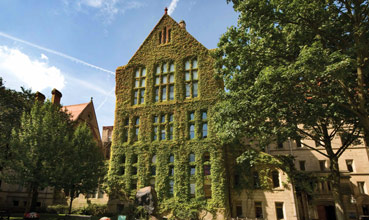
Manchester eTheses
Doctoral theses submitted from 2010 onwards which are currently Open Access are available to view via the University’s Research Explorer.
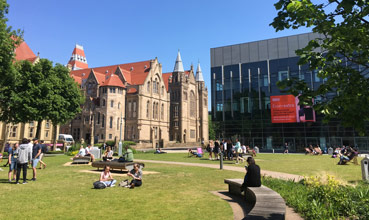
eTheses submission
Supporting Postgraduate Research Students, Supervisors and Administrators with the submission of electronic theses.

Search ProQuest for digitised pre-2010 Manchester theses, as well as over four million theses and dissertations from institutions around the world.
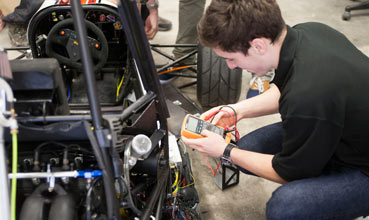
Theses Library Guide
Consult our Theses Library Guide for guidance on how to locate and access theses from UK and International institutions.
- Access resources
- Search Special Collections
- Search books
- Search e-books
- Search databases
- Search journal articles
- Subject guides
- Search digital collections
- Search reading lists
- How to access Library Electronic Resources
- Resources for alumni and visitors

Research in Education
- Lit Review - Best Sources
- Books and Dissertations
- Interlibrary Loan
- How-To for Google Scholar
- How-To for ERIC (EBSCO)
- How-To for ERIC (Free)
- How-To for APA PsycInfo
- How-To for OneSearch
- Is it Peer Reviewed?
- Finding the DOI

Contact Your Librarian

Databases for Locating Books, Theses, and Dissertations
Databases for finding ebooks and print books.
Use these databases to search for books owned by UNI and other universities.

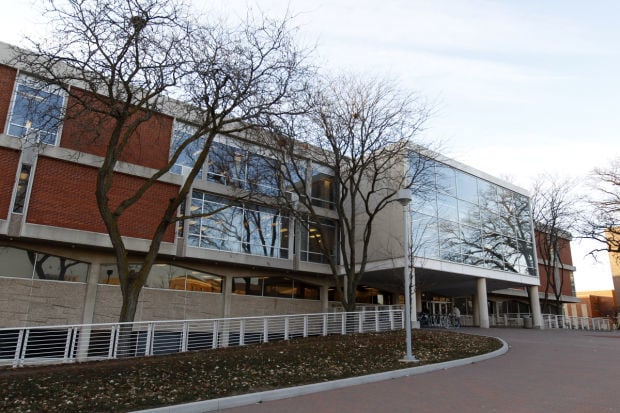
Theses and Dissertations
Use these databases to access the theses and dissertations written at UNI and other universities.

UNI ScholarWorks (UNI Theses and Dissertations)
Searching UNI ScholarWorks for theses and dissertations :
Type in your search. e.g. "cooperative learning"
Limit the results on the left-hand side of the results page by Publication Type = Theses/Dissertations
Accessing theses and dissertations in UNI ScholarWorks :
Click on the title of a thesis.
Click on Download (if Off-Campus Download is an option and you're off-campus click on that option instead).
If no download option is available and you're on campus (or plan to visit campus) copy the title of the thesis and past it into OneSearch - search - and retrieve the call number for the thesis which may be located in the UNI Stacks (4th floor).
- << Previous: Lit Review - Best Sources
- Next: Interlibrary Loan >>
- Last Updated: Aug 22, 2023 3:29 PM
- URL: https://guides.lib.uni.edu/education-research

- Request Info
- About UNI About open dropdown
- History & Traditions
- Office of the President
- Administrative Departments
- Academics Academics open dropdown
- Majors, Minors & Degrees
- Pre-Professional Preparation
- Online & Distance Education
- Colleges & Departments
- Honors Program
- Student Research
- Study Abroad
- Office of the Registrar
- Academic Advising
- Admissions & Aid Admissions & Aid open dropdown
- Transfer Students
- International
- Tuition & Fees
- Financial Aid
- Student Life Life on Campus open dropdown
- Health & Safety
- Housing & Dining
- Student Health & Wellbeing
- Diversity & Inclusion
- Career Services
- Cedar Falls & Waterloo
- Support UNI Support UNI open dropdown
- UNI Alumni Association
- UNI Foundation
- Give to UNI
- Rod Library
- Honors Thesis
Become the expert
Doing research can open up a lot of doors. It allows students to gain valuable skills, think critically and creatively, confirm career plans, work with setbacks and ambiguity, understand where knowledge comes from, and establish personal and professional goals.
Every honors student has the opportunity to complete undergraduate research or creative work during their time at UNI. Students receive guidance from a faculty member in their major or area of interest to develop and complete a project during their last two semesters on campus. The Honors Thesis is the final step toward earning either University Honors or University Honors with Distinction and serves as the culmination of the honors experience.
Spring 2024 Thesis Presentation Schedule
- Honors Credit
- Alumni Update Form
- Program Requirements
- Scholarships & Grants
- Honors Involvement
- First-Year Seminars
- Think Tank Projects
- Legacy Scholars
- Bright Scholars
- Becoming a Strong Candidate
- Scholarships and Fellowships
- Recent Recipients
Full text copies of each Honors Thesis are stored in Rod Library's UNI ScholarWorks digital repository. Each student author receives an entry with unique URL to share with prospective employers or graduate schools. There is an international audience of readers accessing honors theses through UNI ScholarWorks!
The Specifics
Honors thesis process.
The Honors Thesis is a 3-credit-hour project divided between two semesters:
- Semester One - develop a topic and proposal
- Semester Two - complete the research, writing or creative work
The first step in the process is to become familiar with the thesis guidelines. Students are encouraged to attend senior thesis presentations early in their honors career. Thesis informational meetings are held at the beginning of each spring semester for those beginning the thesis during the following academic year.
Honors Research Day
Each spring, the University Honors Program hosts a conference-style research day to celebrate the work of graduating honors students. Students give oral presentations of their honors theses for family, friends, fellow students and professors. The event is open to the public.

Thesis Guidelines
Honors Research Funds
Nadyne harris scholarship for honors research.
- Funds honors research expenses such as supplies, specialized software, photocopying, printing, mailing, photography and travel to research sites
- Open to CHAS and CSBS majors
- Maximum award is $500; amounts will vary depending on number of applicants and funds available
Boatwright Undergraduate Research Grant
- Funds honors research expenses or supports attendance, participation in or presentations at an academic conference
- Open to all majors with preference to history majors
- Maximum award is $1,000; amounts will vary depending on number of applicants and funds available
Additional Funding Sources
Students are encouraged to seek additional UNI funding sources that support undergraduate research and creative work.
University of Washington Links
- College of Arts & Sciences
- Directories
- Concentrations
- Photo/Media
- Painting + Drawing
- 3D4M: ceramics + glass + sculpture
- Field Studies
- Student Work
- Study Abroad
- Art History BA
- Art History Minor
- Art History MA Thesis
- Art History MA Practicum
- Art History PhD
- Student Research
- Interaction Design
- Visual Communication Design
- Industrial Design
- Laptop Requirement
- Master of Design
- BDes/MDes Shows
- COVID-19 Updates
- Voicing a Concern
- News + Events
- Exhibitions
Mobile Menu
- Graduate Students
- Visiting Artists + Lecturers
- Seattle Arts + Culture
- Jobs, Internships, and Opportunities
- First Day Attendance
- Final Exam Attendance
- Career Fair
- Design Travel Award Application
- Finding an Internship
- Finding a Job
- Portfolio Advice
- Resume Advice
- Alumni Blog
- Alumni Statistics
- Prevention Plan
- For Students
- Press Releases
- Stay Connected
- Undergraduate Students
- Jobs + Opportunities
- Academic Advising
- Student Voice Project
- Scholarships + Awards
- Advisory Board
- A-Z Directory
- Recent News
- News Archive
- Technology + Equipment
- Rome Center
- Exhibitions, 2022-2023
- Exhibitions, 2021-2022
- Exhibitions, 2020-2021
- Exhibitions, 2019–2020
- Exhibitions, 2018–2019
- Exhibitions, 2017–2018
- Exhibitions, 2016–2017
- Exhibitions, 2015–2016
- Exhibitions, 2014–2015
- Jacob Lawrence Legacy Residency
- The Black Embodiments Studio
- BIPOC Graduate Student Curatorial Fellowship
- Critical Art Writing Group

You are here
- Summer 2024
DESIGN 700 A: Master's Thesis
Theses and Dissertations
Check Cornell’s library catalog , which lists the dissertations available in our library collection.
The print thesis collection in Uris Library is currently shelved on Level 3B before the Q to QA regular-sized volumes. Check with the library staff for the thesis shelving locations in other libraries (Mann, Catherwood, Fine Arts, etc.).
ProQuest Dissertations and Theses
According to ProQuest, coverage begins with 1637. With more than 2.4 million entries, ProQuest Dissertations and Theses Global is the starting point for finding citations to doctoral dissertations and master’s theses. Dissertations published from 1980 forward include 350-word abstracts written by the author. Master’s theses published from 1988 forward include 150-word abstracts. UMI also offers over 1.8 million titles for purchase in microfilm or paper formats. The full text of more than 930,000 are available in PDF format for immediate free download. Use Interlibrary Loan for the titles not available as full text online.
Foreign Dissertations at the Center for Research Libraries
To search for titles and verify holdings of dissertations at the Center for Research Libraries (CRL), use the CRL catalog . CRL seeks to provide comprehensive access to doctoral dissertations submitted to institutions outside the U. S. and Canada (currently more than 750,000 titles). One hundred European universities maintain exchange or deposit agreements with CRL. Russian dissertation abstracts in the social sciences are obtained on microfiche from INION. More detailed information about CRL’s dissertation holdings .
Please see our resource guide on dissertations and theses for additional resources and support.
Prospective Students
- International Relations
- Doctoral Studies
- Habilitation (Postdoctoral Thesis)
- Faculty 03 Social Siences
- Examinations and Examination Office
B.A. and M.A. Theses
- Information for Students
- Information for First Semesters
- Information for Prospective Students
- Study Programs at the Faculty of Social Sciences
- Vocational Orientation
- Admission of Study Records
- Electronic Exam Registration in QIS/LSF
- Thesis B.A. Political Science SR 2014
- Thesis B.A. Political Science SR 2022
- Thesis B.A. Sociology SR 2015
- Thesis B.A. Sociology SR 2022
- Thesis M.A. ISPC
- Thesis M.A. Political Science SR 2014
- Thesis M.A. Political Science SR 2022
- Thesis M.A. Political Theory
- Thesis M.A. Sociology SR 2015
- Thesis M.A. Sociology SR 2022
- Thesis M.A. Economic Sociology
- Thesis M.A. Comparative Democracy
- Transcripts and Certificates
- Examination Committees
- Examiners for Teaching Studies
Student Counselling
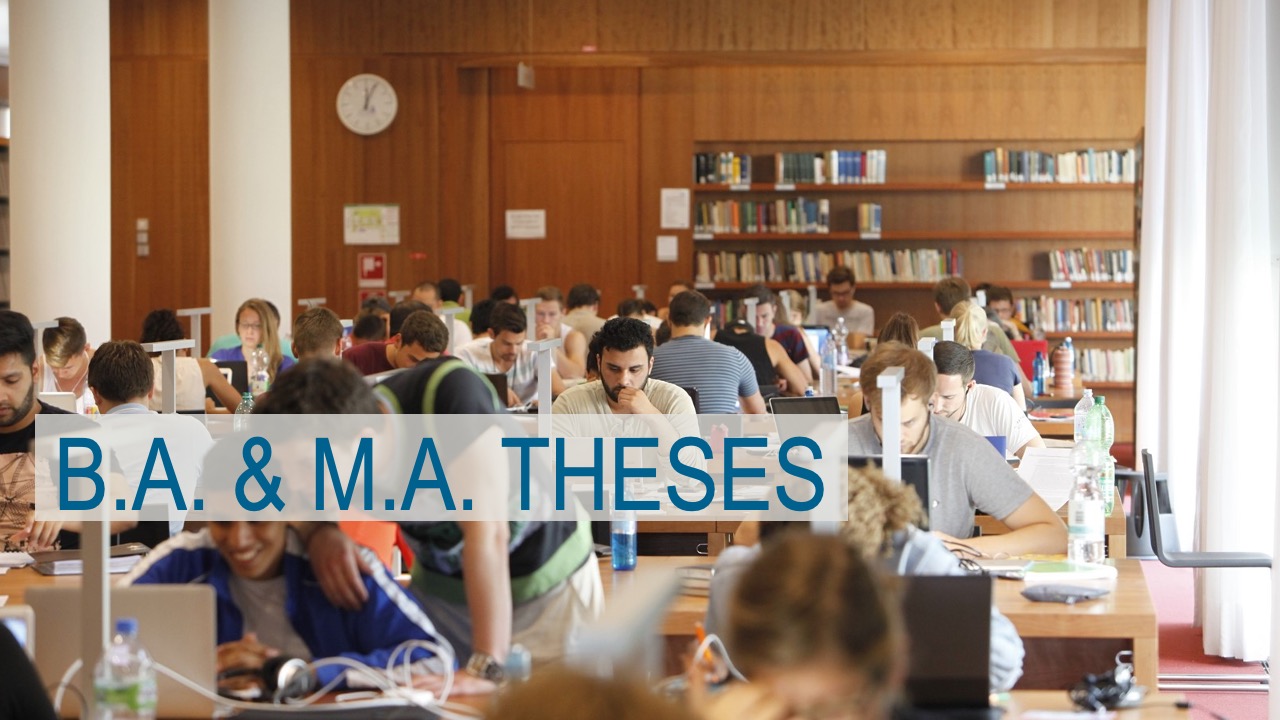
Update on the submission of theses
Please read carefully the respective paragraph of your Study Regulations concerning the bachelor's or master's thesis. You can find there all you need to know.
You can find your study regualtions in the download area under your field of study.
Looking for a Supervisor
Procedure for the search for a supervisor
1. first decide on the topic
You should first think about the topic you would like to write about. Ideally, you should then summarize the topic in an exposé.
2. search for the first supervisor
You should look for a supervisor/first reviewer for your thesis one to two semesters before you start writing it. If you are unsure who is suitable for a topic, please contact the Student Counseling Service. Pay particular attention to the information about theses on the professorships' websites. There you will usually also find information on how best to apply for a thesis. If there is no information on this, we recommend that you always visit the office hours of the potential supervisor. If you make a request by email, you should make it very clear in writing exactly what you want to do for your thesis.
Please note that some examiners want to know their candidates, so you should have taken a final module examination with them. Please also refer to the information on the pages of the professorships.
You should look for your first examiner or supervisor yourself.
If you cannot find anyone, you still have the option of being assigned a supervisor by the examination committee. However, we only recommend this procedure in an emergency. If you want to use this option, write an informal application in which you ask to be assigned a supervisor. The application should include the desired topic and also details of who has already rejected you. The application should be submitted to the Examinations Office by email. The examination committee will then assign someone to you.
3. Search for a second assessor if necessary
You can also look for a second assessor yourself, although the supervisor can recommend someone. If you register your thesis without a second assessor, the examination committee will automatically appoint someone. Please also note the specific requirements regarding your degree program and your study regulations.
4. final determination of the topic in consultation with the supervisor
Together with the supervisor (first reviewer), you then determine the final topic.
5. registration of the thesis
Finally, register your thesis with the Examination Office. The formalities are explained below.
Who may supervise my thesis?
Below you will find information on which groups of people are authorized to supervise theses. Please note that there are differences between the individual degree programs and study regulations. You should therefore pay particular attention to the general explanations listed for your degree program and your study regulations regarding who may supervise a thesis. If you are unsure, you can also ask the Examinations Office.
Here you will find all the essential information about which groups of people are authorized to supervise a thesis as first or second supervisor:
- BA Political Science (Study Regulations 2014)
- BA Political Science (Study Regulations 2022)
- BA Sociology (Study Regulations 2015)
- BA Sociology (Study Regulations 2022)
- MA International Studies / Peace and Conflict Research (Study Regulations 2014 and 2022)
- MA Political Science (Study Regulations 2014)
- MA Political Science (Study Regulations 2022)
- MA Political Theory (Study Regulations 2014 and 2022)
- MA Sociology (Study Regulations 2015)
- MA Sociology (Study Regulations 2022)
- MA Economic Sociology (Study Regulations 2019)
- MA Comparative Democracy
Tips for writing theses
You can find useful advice on how to write your thesis in the download area under your field of study.
Registering your thesis
There is no fixed period for registering a bachelor's or master's thesis. You can register your thesis at the Examination Office at any time using the registration form . You can post the registration form in the letterbox in front of the Examination Office at any time; it is not necessary to come in person during office hours. Please make sure that you have completed it in full.
You can find the form in the download area under your field of study.
After submitting the registration form, you will receive a confirmation letter from the Examination Office, which will also indicate the submission date for your dissertation.
To register for the dissertation, you must have completed the following modules or earned the following CP.
Returning the topic, language, group work
The agreed topic can be returned once only and only within the first third of the processing time. The new topic must differ in content from the returned topic.
As a rule, you must write your thesis in German (exception: M.A. Comparative Democracy). In agreement with the examiners or the chairperson of the Examination Committee, you may write your thesis in English.
Theses in the form of group work can also be allowed if the individual student's contribution to be assessed as an examination achievement is clearly distinguishable and assessable through the indication of sections, page numbers and other objective criteria that enable a clear differentiation.
Processing times and scale
You must submit your thesis to the Examination Office of the Faculty of Social Sciences in due time. If the thesis is not submitted on time, it is deemed to have been failed.
Processing time is as follows:
If the first deadline cannot be met for reasons beyond the student's control (e.g. the student or a child cared for by the student is ill), the chairperson of the Examination Committee extends the processing time in accordance with the respective Study Regulations (see above). The student must apply for this informally to the Examination Office before the first submission date.
The thesis can be submitted at the earliest after 50% of the processing time.
Formal Requirements
Bachelor's theses :
- Submission of the thesis in 3 bound copies
- The Declaration on Examination Achievements must be bound in (see download area under your field of study. ).
- You can discuss further formalities with your supervisor.
- On the cover sheet only the following: degree programme, thesis topic, author's name and submission date.
Master's theses :
- The Declaration on Examination Achievements must be bound in (see download area under your field of study.).
Reviewers’ reports
The standard time for the reports by both reviewers together is 6 weeks after submission of the thesis. The second reviewer can limit himself/herself to co-signing the first reviewer's report if both award the same grade.
Oral Final Examination
Once you have passed your thesis, you must present it within an oral examination. The subject of the oral examination is the content of the dissertation as well as questions and/or tasks in the context of the topic chosen for it. The examination lasts 30 minutes. The supervisor and an observer are present.
As a rule, the student arranges the date for the oral examination with the supervisor and an observer, whereby there are no fixed time periods for this.
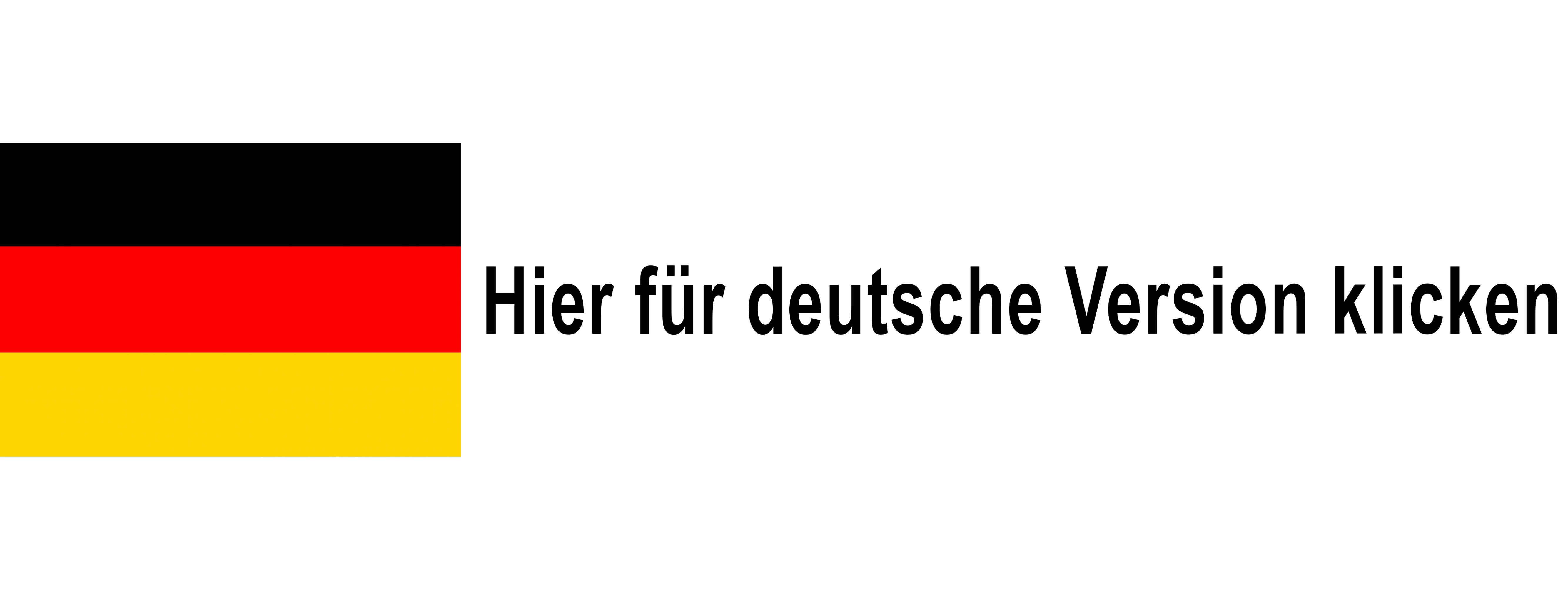
Quick Access
Course Catalogue
Examinations & Examination Office
International
Study Regulations & Downloads
Study Programs
Course Registration
Electronic Exam Registration
First Semesters
Examinations Office Faculty of Social Sciences
Dieter Groh Tel.: (069) 798-36562 PEG 2.G 130
Daniela Toplicanec Tel.: (069) 798-36589 PEG 2.G 132 Responsibilities: Certificates, theses, transcripts
Please send your enquiries primarily by e-mail: [email protected] .
Consultation hours Tuesday and Thursday 11a.m. - 1p.m.
Please wear a FFP 2 mask for consultation hours
- © 2004-2024 Goethe University Frankfurt/Main
- Privacy Policy
- Cookie Settings

- Studying at Goethe University
- International applicants
- Overview of study programmes
- Programme for refugees
- Goethe Business School (continuing education)
- Research at Goethe University
- Scientific news
- Goethe Welcome Center (for international researchers)
- Collaborative research projects
- Individual research
- Visiting fellowships
- Endowed chairs
- About the University
- News-in-brief
- University administration
- Campus locations
- Campus life
- University archives (German)
- Rhine-Main-Universities
- Campuservice (host your event on campus)
- Jobs at Goethe University
- Job board for companies
- University Library
- Student Life
- Life in Frankfurt
- University Sport Centre
- Job Boards (German)
- Cafeteria menus
- Studentenwerk student services

Annual Three-Minute Thesis Competition Provides Research Capsule Talks
Creating an elevator pitch from information gleaned through years of specialized research takes clear thinking, precise wording and a flair for presenting to an audience. Just ask the participants of this year’s Three-Minute Thesis (3MT) competition. Ten graduate and doctoral students took part in the contest’s final round last month.
3MT provides participants with the chance to share details about their research and creative work in a compelling way—within a three-minute time limit. It was first developed by the University of Queensland in Australia and is now held at colleges and universities around the world.
“3MT forces students to come up with ways to describe their research succinctly to non-specialists in a way that is not just comprehensible, but is also interesting and engaging. That’s a skill set that will pay off on the job market, and even beyond, as far as interacting with the media and others who can help disseminate your work and findings more broadly,” says Glenn Wright, executive director of career and professional development for the Graduate School, who runs the competition.

Nimisha Thakur
This year’s top winner is Nim isha Thakur , a Ph.D. student in anthropology, whose topic was “ River Song: Riverine Futures Amidst Climate Change on the Brahmaputra Floodplains .” Thakur, a graduate research associate at the South Asia Center in the Maxwell School of Citizenship and Public Affairs , won a 16-inch MacBook Pro M3 and a year membership in the Anthropological Association of America. Thakur also has the chance to represent Syracuse University in the regional 3MT competition hosted by the Northeastern Association of Graduate Schools.

Qingyang Liu
Qingyang Liu , a Ph.D. student in human developm ent and family science, was named the “People’s Choice” winner by audience vote. Liu conducts research in the SELF Regulation Laboratory in the David B. Falk College of Sport and Human Dynamics . Her topic was “ Material Hardship’s Influence on Self-Regulation Across Childhood: Which Hardship Truly Matters ?” The prize was a set of Bose noise-cancelling headphones.
Additional finalists were:
- Caroline Barraco , master’s student in history, “Authenticity, Commodity and Empire in the Early Modern Spanish Relic Trade”
- Yener Çağla Çimendereli , Ph.D. student in philosophy, “Nonnative Speaking and Linguistic Justice”
- Nicholas Croce , Ph.D. student in social science, “America’s Forgotten Labor Colony Experiment”
- Nardini Jhawar , Ph.D. student in clinical psychology, “Racial Reflections: Examining ADHD Help-Seeking Among Asian American College Students”
- Matthew D. O’Leary , Ph.D. student in anthropology, “Entangled Frontiers: Capitalism and Artifacts of Power at Fort St. Frédéric”
- Andrew Ridgeway , Ph.D. student in composition and cultural rhetoric, “Evil We Desire: Akrasia and Conspiracy Rhetoric”
- Paul Sagoe , Ph.D. student in biomedical engineering, “From Joint Pain to Joy Gain: Delivering Drugs for Osteoarthritis Cure”’
- Julia Zeh , Ph.D. student in biology, “From Baby Babbles to Masterful Melodies: Investigating Vocal Development in Humpback Whales”
Judges were Sarah Hamersma, associate professor and director of doctoral studies in public administration and international affairs, and Chung-Chin Eugene Liu, assistant professor of economics, both of the Maxwell School; and Corey Williams, a Syracuse City School District employee and a Common Councilor for Syracuse’s Third District.
Diane Stirling
- Faculty and Staff: Join Your Colleagues at the Syracuse WorkForce Run/Walk/Roll for Food, Fitness and Fun Friday, April 19, 2024, By News Staff
- Behind the Scenes Heroes: The Impactful Role of Public Safety Dispatchers Friday, April 19, 2024, By Alex Haessig
- ‘The Droll (Or, a Stage-Play about the END of Theatre)’ Closes Out Department of Drama 2023-24 Season Thursday, April 18, 2024, By Joanna Penalva
- Auxiliary Services Welcomes New Executive Chef for Campus Dining Thursday, April 18, 2024, By Abby Haessig
- Campus Dining and Stores to Become Fully Cashless in Fall 2024 Thursday, April 18, 2024, By Abby Haessig
More In Campus & Community
Faculty and staff: join your colleagues at the syracuse workforce run/walk/roll for food, fitness and fun.
At the 2023 Syracuse WorkForce Run/Walk/Roll (formerly the J.P. Morgan Corporate Challenge), Syracuse University held the distinction of being the largest employer represented among dozens of local companies participating in the annual tradition for the second year in a row….
5 Honorary Degrees to Be Presented at 2024 Commencement
An award-winning journalist, a hall of fame basketball coach, a nationally recognized library conservationist, a global financial executive and a renowned computer scientist will be recognized with honorary degrees from Syracuse University at the 2024 Commencement on Sunday, May 12,…
Behind the Scenes Heroes: The Impactful Role of Public Safety Dispatchers
Every year, the second week of April marks National Public Safety Telecommunicators Week (NPSTW), a time dedicated to recognizing and celebrating the dedication, service and sacrifices of public safety telecommunicators. The staff of the Emergency Communications Center (ECC) within the…
Libraries’ Earth Day Events Highlight Plastic Collection Materials
Plastics. They’re lightweight, durable, flexible, inexpensive. They’re moldable, extrudable, pressable. They’re colored and clear; they’re dinnerware, jewelry, vinyl siding, military supplies, toys and thousands more things. In the early half of the 20th century, the availability of polymers and fossil…
Auxiliary Services Welcomes New Executive Chef for Campus Dining
A Syracuse native, Chef Ilana (Ih-lah-nah) Cahill’s culinary journey began at one of the city’s most iconic restaurants: Dinosaur BBQ. She spent nine years there, starting out as the hostess and working her way up through the ranks. When Cahill…
Subscribe to SU Today
If you need help with your subscription, contact [email protected] .
Connect With Us
For the media.

University Libraries - Engineering Library
Engineering thesis summer camp 2024.
Writing a thesis can be hard work! The Engineering Library & Hanson Center for Communication are here to help. Join our Engineering Summer Thesis Camp which will bring together a community of graduate students to write, eat, and learn together. We will provide some structure, inspiration, and support to help you excel in your thesis writing throughout the summer. This 7 week program will run June 4 th through July 25 th . Each Tuesday through Thursday from 10 am to 1 pm.
Registration and Cost
Engineering Thesis Summer Camp is FREE! We do ask that participants register so we can plan food and activities. Sign up here to let us know you are interested.
Sign up through the Engineering Thesis Summer Camp Interest form to be on an email list to receive weekly updates throughout the summer about programing. We are not requiring registration for every session; it’s come as you are able and to give us a sense of how much food to order.
Engineering Thesis Summer Camp is made for current engineering and computer science graduate students (MS and PhD) in any stage of writing their thesis or dissertation.
Tuesday, Wednesday, and Thursday in person programming from 10 a.m. – 1 p.m.
Tuesday programming will have a lunch and learn from 12 – 1 with topics ranging from building healthy writing habits, creating citations, and so much more. See more below.
Attendees to Thursday programming will have access to 15-minute individual coaching meetings with HCC staff. There will be writing tutors available all week.
Where and When
Engineering Thesis Summer Camp will run for 7 weeks, start June 4th and end July 25th between 10:00 a.m. and 1:00 p.m.
There will be no programming the week of July 4 th
We understand that people have plans over the summer. If you are registered, please attend programming when you are in town.
We will meet in the Hanson Center for Communication, 4650 Seamans Center
Example Weekly Schedule
Tuesday Lunch & Learn Workshops Schedule:
Tuesday programming will have a lunch and learn from 12 – 1 with topics ranging from building healthy writing habits, creating citations, and so much more. The Tuesday workshops are open to anyone and not just those attending the writing sessions.
Week 1 – June 4 th – Writing Workshop (Narrative structure, Clarity, Cohesion)
In this workshop, our team will work with you to weave the threads of your research into a clear and cohesive narrative. Presented by Danielle Land, Hanson Center for Communication
Week 2 – June 11 th – – Managing Anxiety/Stress/Procrastination
This workshop is designed to help students learn to better manage their anxiety, stress, and procrastination by utilizing a variety of tools and strategies that they can implement in their daily lives. Presented by Heidi Schmitt, University Counseling Service.
Week 4 – June 18 th – Endnote & Creating Citations
An introduction to the desktop version of EndNote will be covered in this workshop. The software is freely available to Graduate Students, Faculty, and Staff. EndNote is a citation management tool that assists with importing, organizing, sharing, and managing citations and documents, as well as create correctly formatted in-text citations and bibliographies in almost any style — in seconds. Presented by Marina Zhang, Lichtenberger Engineering Library
Week 4 – June 25 th – Guidelines4GoodGraphs
Learn the best practices for designing figures for research articles and presentations, and then you will receive feedback on your figures in a low-stakes peer environment. Presented by Danielle Land, Hanson Center for Communication
Off Week – July 2 nd
Week 5 – July 9 th – Imposter Phenomena – Scanlan Center for School Mental Health – Barry Schreier
We all engage in “Impostering” or believing we are not good, not deserving enough, or not producing enough in our lives at the university. This workshop assists you with learning: the definitions of Imposter Syndrome, what steps you can take to partially undo Imposter Syndrome, and the systems that contribute to creating Imposter Syndrome. You are never alone! There are partners to support you in finding campus mental health and well-being resources. Presented by: Barry A. Schreier, Ph.D., H.S.P., Director of the Higher Education Program, Scanlan Center for School Mental Health
Week 6 – July 16 th – Strategies for Focus and Time Management
Join this workshop on time management, where you’ll learn practical strategies to take control of your time and boost your productivity. Presented by Kathleen Shaughnessy, Hanson Center for Communication
Week 7 – July 23 rd – Behind the Scenes: IEEE Publisher
Identifying where to publish your research can be a daunting task. Should you write a conference paper, a journal article or both? What happens after you paper is submitted? What is peer review, an ORCID ID, a predatory journal and other publication jargon? In this session, IEEE Client Services Manager Brian Ryckman, will provide insights into publishing with IEEE, including: tips for selecting an appropriate periodical or conference to submit your manuscript, how successful authors structure quality work to improve their chances of being accepted, insights into what editors look for in a submission and why editors and reviewers reject papers, strategies for increasing the visibility of your research, and tools & resources to help authors through the publishing process at IEEE, including the IEEE Author Center and IEEE Xplore Presented by Brian Ryckman, IEEE Publishing Society
Individuals with disabilities are encouraged to attend all University of Iowa-sponsored events. If you are a person with a disability who requires a reasonable accommodation in order to participate in this program, please contact Kari Kozak in advance at [email protected] .
Raptor Research Center
- Share on Facebook
- Share on Twitter
- Share on LinkedIn
- Share through Email
- Student & Alumni Updates
Ashley Santiago Thesis Defense
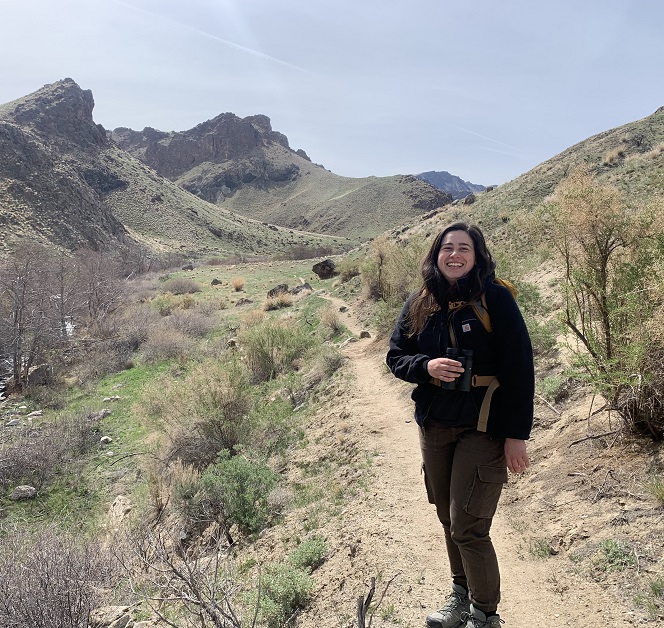
Boise State University MS Raptor Biology student Ashley Santiago defended her thesis, “Associations Between Landscape Changes And Declines In Golden Eagle Territory Occupancy In The Morley Nelson Snake River Birds Of Prey National Conservation Area ” on the morning of April 19, 2024. Santiago’s main advisor is Julie Heath (MS, Raptor Biology, ’96; Boise State University Raptor Research Center , Biological Sciences ) , and her committee includes Jen Cruz ( Boise State University Raptor Research Center , Biological Sciences) and Donna Delparte (Boise State University Biological Sciences).
Rapid loss of native shrubs and expansion of invasive annuals like cheatgrass (Bromus tectorum) have extensively altered shrub-steppe systems. Vegetation changes can have bottom-up effects on trophic interactions and ecosystem dynamics. Predators, like Golden Eagles (Aquila chrysaetos) that forage on shrub-reliant prey, may increase their territory size to cope with degraded habitat or abandon historically occupied territories sites. We used a multi-season occupancy model that accounted for imperfect detection to investigate the associations between landscape cover (i.e., shrub and annual herbaceous), fire history, neighbor density, and eagle territory occupancy of 36 Golden Eagle nesting territories in the Morley Nelson Snake River Birds of Prey National Conservation Area (NCA), Idaho, USA from 1986–2022.
The probability of Golden Eagle occupancy decreased 23% from 0.82 in 1986 to 0.59 in 2022. Further, once territories became vacant, they tended to remain vacant, suggesting that the territories were no longer suitable for eagles or no new eagles were recruiting into the population. Territory occupancy was negatively associated with annual herbaceous cover (β: -0.86, 95% CI: -1.53 to -0.24) and tended to be positively associated with shrub cover (β: 0.63, 95% CI: -0.11 to 1.39) and time since last burn (β: 0.25, 95% CI: -0.28 to 0.83). Territories that were farther from other occupied territories had a higher probability of occupancy than territories with closer neighbors (β: -3.56, 95% CI: -4.22 to -2.92), likely because as habitat degraded, eagles compensated by expanding their territories into nearby vacant territories. The probability of detection was high at 0.90 but improved in surveys conducted earlier in the day and later in the breeding season.
Together, these results show that landscape change and habitat degradation have bottom-up effects on Golden Eagle behavior and territory occupancy, resulting in an overall decrease in the local carrying capacity for eagles. Understanding associations between environmental change and territory occupancy has important implications for predicting population persistence and eagle adaptability to changing landscapes.

Congratulations Honors Seniors!

The schedule for presentation day is here! To find yourself, use the search tool in the upper right and type your name. The schedule will list your room in HL, your 'panel time' and your 'presentation time'.
Your panel time is the hour in which you are designated to present, and your presentation time is your position within the panel. We expect that you will make every effort to be present for your entire panel. If you cannot be present for the whole hour, you should let us know by emailing [email protected].
By the morning of April 30th ,for each individual room, a public Zoom link will be provided in the schedule for remote presenters as well as family and friends who wish to join to watch your presentations.
For details on how the day works, see our ' Presentation Day' page here .
About Changes to this Schedule:
All presenting seniors were sent 3 emails with a 10 day window with the opportunity to submit times in which they could not present and their final title. That information was used to create this schedule, which cannot be changed for any reason, so please do not request a change at this point. To attempt a change would adversely impact other students. If you have an emergency or something comes up, email [email protected] and inquire about a make up presentation time.
If you did not respond to the form by submitting a final thesis title, a generic one has been used that notes your last submitted field of study. Due to the status of the schedule as published, this information also cannot be changed either in the schedule, or the convocation printed program.
An embedded copy of the schedule is below, or you may follow the link above to open in full window.
More Honors News
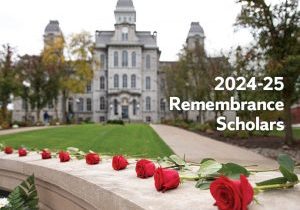
Twenty-Seven Honors Students Named 2024-25 Remembrance Scholars
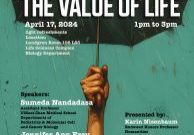
The Value of Life Symposium: April 17th

Join Gabrielle Pinkney for her Senior Voice Recital!

Eid Sweets Gift Boxes

Equitable Energy Transitions: March 28th

Blackstone Launchpad Tour for Honors Students: April 5th
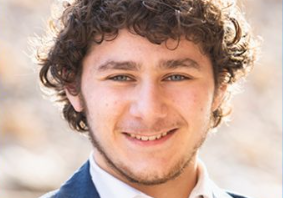
Jeremy Todd Shinder ’24 Named a 2024 VPA Scholar
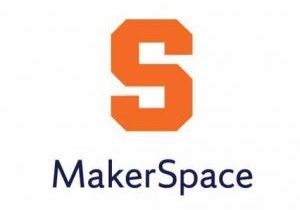
ITS MakerSpace Tour for Honors Students

Submissions for the SA Sustainability Form Green Innovation Competition are Open!
Search our site, syracuse university news.
NMAT students featured in annual Senior Thesis Exhibition

KOKOMO, Ind. — Isabelle Hollan considers her journey to from childhood to college graduation in Metamorphosis, a series of artwork featured in the annual Indiana University Kokomo Senior Thesis Exhibition.
The prints, which are five digitally drawn images on 18-inch by 24-inch canvases, “go over the emotions that you go through from childhood to adulthood, from my perspective at 22,” said Hollan, a new media, art, and technology major from Whitestown.
“It feels like a culmination of my entire college experience, “ she said. “It’s the end of an era.”
Hollan is one of eight graduating seniors featured in the exhibition, which continues through Thursday, May 16 in the Art Gallery.
Additional artists include Abigail Carman, Alex Guldi and Brendan Coleman, Kokomo; Elizabeth Byrum, Logansport; Kaylan Howard, Monticello; Kaelan Baker, Rochester; and Ivan Hollingsworth, Sharpsville.
The exhibition demonstrates the level of competence each student achieved in the NMAT program and allows the campus and community to view their work. Bachelor of Fine Arts students complete a capstone course in their final year, with projects that culminate in a focused body of work.
Hollan hopes to work in graphic design after graduation and looks forward to being a working artist.
“There are more ways to make a living by doing art than you would think,” she said. “Being at IU Kokomo, I’ve met so many people who are going into different fields. It’s the same major, but we have people going into animation, who want to be art gallery directors – there are so many aspects of art to choose as a career. It’s more than painting a picture.”
The exhibit is free and open to the public in the Gallery, in the IU Kokomo Library Building, 2300 S. Washington St. Free parking is available on campus.
The IU Kokomo Art Gallery is open 10 a.m. to 5 p.m. Monday through Thursday, and closed Friday, Saturday, and Sunday.
For more information about the IU Kokomo Art Gallery’s, visit
Education is KEY at Indiana University Kokomo. kokomo.iu.edu/gallery/
Contact Info
Erin Witt, director of media and marketing 765-455-9468 [email protected] Danielle Rush, communications specialist 765-432-9906 [email protected]
Filed under:
More stories.

Campus hosts 60th annual Howard County Science Fair

CPR, sustainability, student travel funded by campus giving circle
Social media.
- Facebook for IU Kokomo
- Twitter for IU Kokomo
- Instagram for IU Kokomo
- Youtube for IU Kokomo
Indiana University Kokomo
Indiana university.
- Have a question? AskIU
- Learn more about UITS
- Outlook Web Access
- Federally Required Disclosures
- Information Privacy Policy
- 15 to finish
- Non-Discrimination Notice
- Majors and Degrees
- IT Knowledge Base
- Academic Calendars
- IT Services (UITS)
- Report an Accessibility Concern

School of Criminology
Rebecca Paulsen successfully defends her MA thesis
- Administration and Staff
- Criminology Faculty
- Applied Legal Studies Faculty
- Adjunct Professors & Associate members
- Emeritus & retired faculty
- In Memoriam
- Visiting Faculty & Term Lecturers
- Director's Welcome
- Why study criminology
- Honours Program
- Post Baccalaureate Diploma Programs
- Second Degree Option
- Directed Readings and Directed Studies
- Application Process
- Placement Opportunities
- Guidelines for Field Placement Descriptions
- Responsibility of the Agency Field Supervisor
- Advising FAQ
- Contact an Advisor
- Sample Course Plan A (3 Term)
- Sample Course Plan B (2 Term)
- Sample Course Plan C (Lighter Option)
- Program Completion Check Sheets
- Alumni Testimonials
- Graduate Director's Welcome
- Faculty & Administration
- Program Overview
- BC Notaries Public
- Research group
- Alumni Profiles
- Graduate Students' Association
- MA Students
- PHD Students
- Upcoming Thesis Defence
- Research Clusters
- Institute & Centres
- Research Connections
- Presentations & Videos
- Student Association (CSA)
- Publications
- The Founding Family
- Annual Forum
- Annual Lecture and Dialogue Series
- The Ting Ocassional Forums
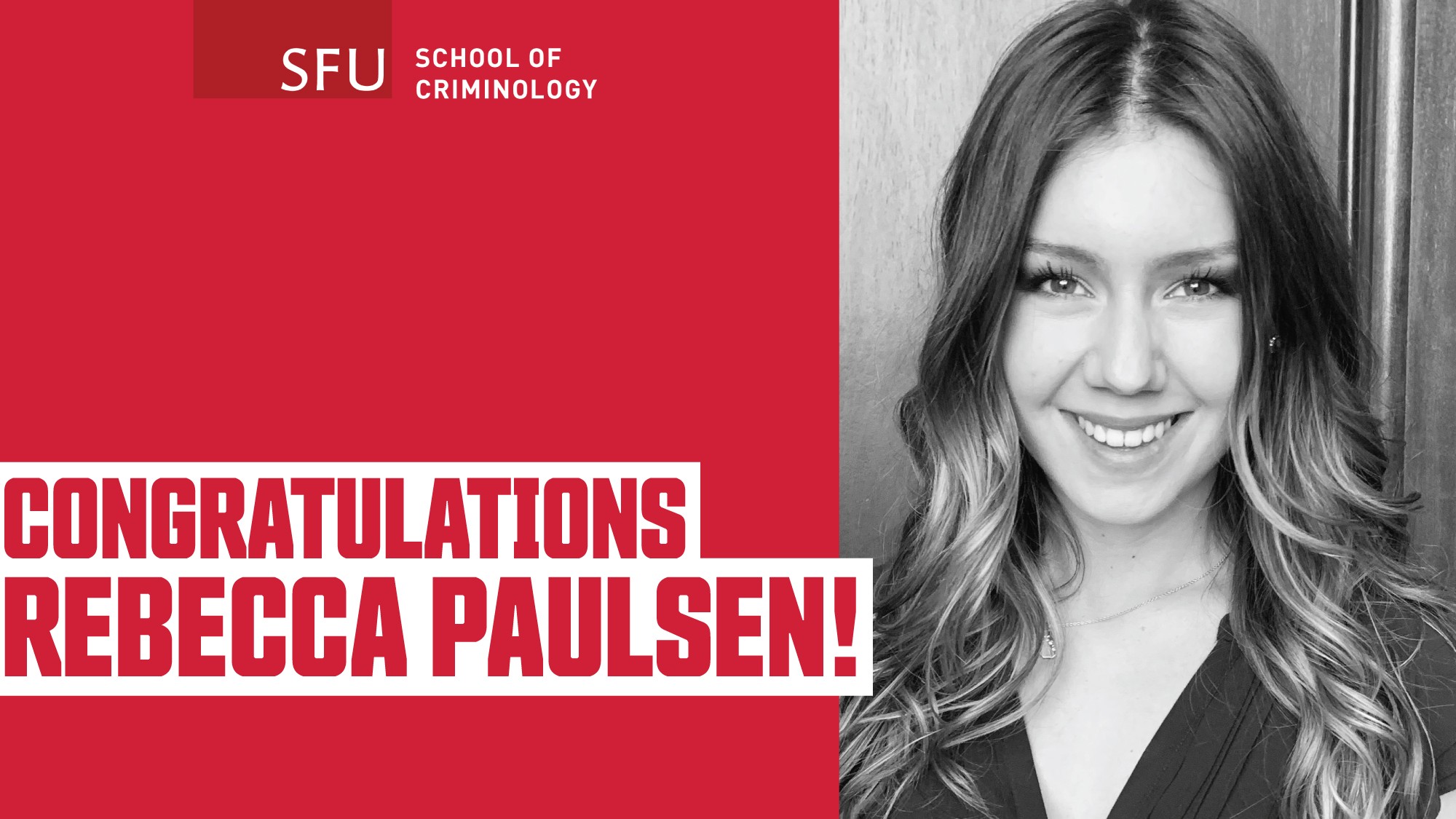
Big congratulations to Rebecca Paulsen for successfully defending her MA thesis titled “British Columbia Police Officer Perceptions of Mandatory Drug Treatment within the Context of Decriminalization”.
In January 2023, the province of British Columbia (BC) decriminalized small amounts of drugs for personal possession to reduce the stigma and harms associated with drug use for people who use drugs (PWUD). Police officers in BC (n=36) were interviewed prior to the implementation of decriminalization to understand their perspectives towards the incoming exemption, along with other drug policies and strategies. The current study utilized qualitative thematic analysis to explore officer perceptions towards drugs and abstinence-based approaches – specifically, mandatory drug treatment. Findings showed that officers were conflicted about their opinions of mandatory treatment – they presented arguments both for and against this treatment modality. Ultimately, officers viewed mandatory treatment as a justified means of mitigating their fears about the potential impacts of decriminalization, such as a loss of control over PWUD and increase in drug-related crime. The implications of these findings for policy makers, government, PWUD, and police are explored.
- Criminology graduate programs
Get involved
- Sign up for our monthly newsletter

Home > College of Social & Behavioral Sciences > Kinesiology > Student Work > Theses & Dissertations
Theses & Dissertations
This collection contains theses and dissertations by graduate students in the Department of Kinesiology at the University of Northern Iowa. To search all Dissertations and Theses @ UNI, click here . To go to the Department of Kinesiology page, click here .
Theses/Dissertations from 2023 2023
The Effect of a 5-Week Concurrent Training Program on ACFT Scores, Ruck March Times, and Aerobic Capacity in Army ROTC Cadets , Cody Durbin Open Access Thesis
An Exploration of Commitment in Walk-on Athletes , Clint Huemann Open Access Thesis
Strengths-Based Leadership Traits in Intercollegiate Student-Athletes , Caitlin Thilges Open Access Thesis
Theses/Dissertations from 2022 2022
A familiarization protocol: Repetitions in reserve , Elvert A. Wise Open Access Thesis
Theses/Dissertations from 2021 2021
Effects of transcranial direct current stimulation of the motor cortex on cycling time trial performance and prefrontal cortex activation , Abigail Hope Auten Open Access Thesis
Halo Sport ergonomic effects on older adults' cognitive, balance, and motor performance , Kristina Cavey Open Access Thesis
Theses/Dissertations from 2020 2020
Through their eyes: Exploring the relationship between college females' body perceptions and recreation center messaging , Sydney Leigh Ann Cindrich Open Access Thesis 2020 Award
Recoverability of large vs small muscle groups , Jacob Alan Clark Open Access Thesis
Physiological performance characteristics of Universal Tennis Rating (UTR) , Savanna Storm Hunt Open Access Thesis
Young athletes' perceptions of playing through pain , Aubri Keesee Open Access Thesis
Indices of metabolic stress following resistance exercise , Steven Alexander Long Open Access Thesis
Effects of a sport nutrition education intervention on nutritional knowledge, dietary behaviors, and self-efficacy in NCAA Division I softball players , Kylie Wilson Open Access Thesis
Theses/Dissertations from 2016 2016
Comparison of three base stealing techniques in Division I collegiate baseball players , Sean Boss Open Access Thesis
Female athletes' perceptions towards alcohol and performance: a psychological approach , Stephanie Dalmacio Open Access Thesis
Advanced Search
- Notify me via email or RSS
- Collections
- Disciplines
Author Corner
- Kinesiology Home
- Research and Sponsored Programs
- Rod Library
- University Archives
- Offensive Materials Statement
- UNI ScholarWorks ISSN 2578-3637
Home | About | FAQ | My Account | Accessibility Statement | Contact Us
Privacy Copyright
University of Northern Iowa Rod Library 1227 W. 27th Street Cedar Falls, IA 50614-3675 www.library.uni.edu

IMAGES
VIDEO
COMMENTS
All UNI graduate programs require a culmination work, such as a dissertation, thesis, or graduate research paper, before awarding a graduate degree. This collection includes theses and dissertations submitted electronically. To view the Award Winners, click here. To view a collection of Dissertations Only, click here.
The University Honors Program is an intellectually stimulating and socially nurturing community of students of exceptional academic achievement. Every honors student has the opportunity to complete undergraduate research during their time at UNI by writing a thesis. Students work with faculty members in their major or area of interest to develop and conduct a study during either their Junior ...
A thesis is a type of research paper based on your original research. It is usually submitted as the final step of a master's program or a capstone to a bachelor's degree. Writing a thesis can be a daunting experience. Other than a dissertation, it is one of the longest pieces of writing students typically complete.
You may also want to consult these sites to search for other theses: Google Scholar; NDLTD, the Networked Digital Library of Theses and Dissertations.NDLTD provides information and a search engine for electronic theses and dissertations (ETDs), whether they are open access or not. Proquest Theses and Dissertations (PQDT), a database of dissertations and theses, whether they were published ...
Award-winning undergraduate theses. University: University of Pennsylvania Faculty: History Author: Suchait Kahlon Award: 2021 Hilary Conroy Prize for Best Honors Thesis in World History Title: "Abolition, Africans, and Abstraction: the Influence of the "Noble Savage" on British and French Antislavery Thought, 1787-1807". University: Columbia University
Keep your thesis prominent in your introduction. A good, standard place for your thesis statement is at the end of an introductory paragraph, especially in shorter (5-15 page) essays. Readers are used to finding theses there, so they automatically pay more attention when they read the last sentence of your introduction.
Thesis. Your thesis is the central claim in your essay—your main insight or idea about your source or topic. Your thesis should appear early in an academic essay, followed by a logically constructed argument that supports this central claim. A strong thesis is arguable, which means a thoughtful reader could disagree with it and therefore ...
Use your university's formatting guidelines and templates to your advantage. If your institution has a template for formatting your thesis or dissertation that you can use, do so. Don't look at another student's document and try to replicate it yourself.
A dissertation is a long-form piece of academic writing based on original research conducted by you. It is usually submitted as the final step in order to finish a PhD program. Your dissertation is probably the longest piece of writing you've ever completed. It requires solid research, writing, and analysis skills, and it can be intimidating ...
10 tips for writing an undergraduate dissertation. 1. Select an engaging topic. Choose a subject that aligns with your interests and allows you to showcase the skills and knowledge you have acquired through your degree. 2. Research your supervisor. Undergraduate students will often be assigned a supervisor based on their research specialisms.
Whether we are providing financial support, presenting professional development workshops, or offering support for student conferences, the role of the Graduate College is to provide a unified experience throughout your graduate studies. We're here for you from your first class through you joining a network of successful alums. The Graduate ...
The Harvard University Archives' collection of theses, dissertations, and prize papers document the wide range of academic research undertaken by Harvard students over the course of the University's history.. Beyond their value as pieces of original research, these collections document the history of American higher education, chronicling both the growth of Harvard as a major research ...
Thesis supervision plan (Master's thesis) and proposal of examiners. Examiners of a Master's thesis. The supervisor (s) of the thesis may also act as the examiners of the thesis if they fulfil the requirements stipulated in the Tampere University Regulations on Degrees. According to Section 28 "At least one of the examiners must be ...
The thesis collection from the Medical Library has been relocated to the library's Research Reserve. The collection includes: PhD, MD, MSc, ChM and DSc theses of staff and postgraduate students of the Health Sciences Faculty, from 1910 to date. A card catalogue in the Medical Library contains details of the earlier theses, or you may check the ...
Dissertations and Theses @ UNI. All UNI graduate programs require a culmination work, such as a dissertation, thesis, or graduate research paper, before awarding a graduate degree. This collection includes theses and dissertations submitted electronically. To view the Award Winners, click here. To view a collection of Dissertations Only, click ...
You can find theses submitted by University of Manchester postgraduate research students from the late 19th Century to the present day using the Library Search box above. Or try the Advanced Search for more options (select 'Theses' from the drop-down list for 'Material type'). Follow the links below for more information about accessing ...
Theses and Dissertations. Use these databases to access the theses and dissertations written at UNI and other universities. All UNI graduate programs require a culmination work, such as a dissertation, thesis, or graduate research paper, before awarding a graduate degree. This collection includes theses and dissertations submitted electronically.
The Honors Thesis is a 3-credit-hour project divided between two semesters: Semester One - develop a topic and proposal. Semester Two - complete the research, writing or creative work. The first step in the process is to become familiar with the thesis guidelines. Students are encouraged to attend senior thesis presentations early in their ...
DESIGN 700 A: Master's Thesis. Summer 2024. View in MyPlan. View in Time Schedule.
Partnership: UNI tutors and families, Melissa Blohm Thesis (UNI Access Only) PDF. Implementation of the environmental issues instruction model by elementary teachers, Barbara Ann Ehlers Open Access Dissertation. PDF.
Check Cornell's library catalog, which lists the dissertations available in our library collection. The print thesis collection in Uris Library is currently shelved on Level 3B before the Q to QA regular-sized volumes. Check with the library staff for the thesis shelving locations in other libraries (Mann, Catherwood, Fine Arts, etc.).
Please submit the paper as a PDF by E-Mail ([email protected]) and the printed copies either in person during the office hours indicated on the homepage or send your paper by mail. ... The thesis can be submitted at the earliest after 50% of the processing time. Formal Requirements Bachelor's theses: Submission of the thesis in 3 ...
Ten graduate and doctoral students took part in the contest's final round last month. 3MT provides participants with the chance to share details about their research and creative work in a compelling way—within a three-minute time limit. It was first developed by the University of Queensland in Australia and is now held at colleges and ...
Engineering Thesis Summer Camp is made for current engineering and computer science graduate students (MS and PhD) in any stage of writing their thesis or dissertation. Format. Tuesday, Wednesday, and Thursday in person programming from 10 a.m. - 1 p.m. Tuesday programming will have a lunch and learn from 12 - 1 with topics ranging from ...
Boise State University MS Raptor Biology student Ashley Santiago defended her thesis, "Associations Between Landscape Changes And Declines In Golden Eagle Territory Occupancy In The Morley Nelson Snake River Birds Of Prey National Conservation Area" on the morning of April 19, 2024. Santiago's main advisor is Julie Heath (MS, Raptor Biology, '96; Boise State University Raptor Research ...
The beef debate: Religion, history, and harmony in India, Shreya Singh Open Access Thesis. PDF. Digital conditions of self & social construction: A critical synthesis of our digital ecosystem & the implications for identity, knowledge, & ideology, Alexander Sojka Thesis (UNI Access Only) Theses/Dissertations from 2020 PDF
The schedule for presentation day is here! To find yourself, use the search tool in the upper right and type your name. The schedule will list your room in HL, your 'panel time' and your 'presentation time'. Your panel time is the hour in which you are designated to present, and your presentation time is your position within the panel.
KOKOMO, Ind. — Isabelle Hollan considers her journey to from childhood to college graduation in Metamorphosis, a series of artwork featured in the annual Indiana University Kokomo Senior Thesis Exhibition. The prints, which are five digitally drawn images on 18-inch by 24-inch canvases, "go over the emotions that you go through from childhood to adulthood, from my perspective at 22 ...
Simon Fraser University respectfully acknowledges the xʷməθkʷəy̓əm (Musqueam), Sḵwx̱wú7mesh Úxwumixw (Squamish), səlilwətaɬ (Tsleil-Waututh), q̓íc̓əy̓ (Katzie), kʷikʷəƛ̓əm (Kwikwetlem), Qayqayt, Kwantlen, Semiahmoo and Tsawwassen peoples on whose unceded traditional territories our three campuses reside.
Theses & Dissertations. Total Papers Total Downloads Downloads in the past year. This collection contains theses and dissertations by graduate students in the Department of Kinesiology at the University of Northern Iowa. To search all Dissertations and Theses @ UNI, click here. To go to the Department of Kinesiology page, click here.